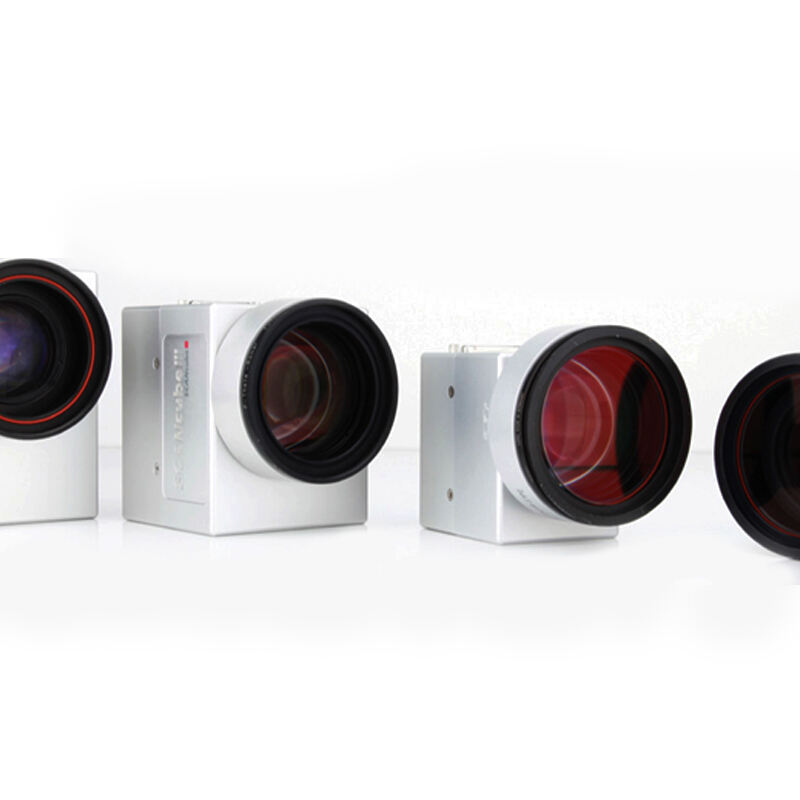Revolutionizing Modern Industry Through Advanced Laser Technology
The industrial landscape is experiencing a profound transformation through the integration of sophisticated laser welding machine technology. These precision instruments have become indispensable across various sectors, offering unprecedented accuracy, efficiency, and versatility in manufacturing processes. As industries continue to evolve, the demand for high-precision welding solutions has led to remarkable innovations in laser system capabilities.
Today's advanced laser welding machine systems represent the pinnacle of manufacturing technology, combining powerful laser sources with precise control systems to deliver exceptional results. These sophisticated tools have revolutionized traditional welding methods, enabling manufacturers to achieve previously impossible levels of precision and consistency in their operations.
Advanced Manufacturing Applications and Capabilities
Precision Engineering in Automotive Production
The automotive industry has embraced laser welding machine technology as a cornerstone of modern vehicle production. These systems excel in creating strong, precise welds for critical components such as transmission parts, body panels, and safety features. The ability to produce consistent, high-quality welds at high speeds has significantly improved production efficiency while maintaining exceptional quality standards.
Modern vehicles incorporate increasingly complex designs and lightweight materials, making traditional welding methods less practical. Laser welding machines address these challenges by offering precise control over heat input and weld penetration, ensuring optimal joint strength without compromising material properties. This capability has proven particularly valuable in working with advanced high-strength steels and aluminum alloys commonly used in contemporary automotive design.
Electronics and Microcomponent Assembly
In the electronics industry, laser welding machine systems have become essential for producing miniaturized components and assemblies. The technology's ability to create extremely precise, controlled welds at microscopic scales makes it ideal for manufacturing smartphones, computers, and other electronic devices. The non-contact nature of laser welding prevents damage to sensitive components while ensuring reliable electrical connections.
The integration of advanced control systems allows for automated processing of complex electronic assemblies, maintaining consistent quality across large production runs. This precision and reliability have made laser welding machines indispensable in the production of modern electronic devices, where component sizes continue to shrink while functionality expands.
Medical Industry Applications and Innovations
Surgical Instrument Manufacturing
The medical industry relies heavily on laser welding machine technology for producing surgical instruments and medical devices. The precision and cleanliness of laser welding make it ideal for creating sterile, high-quality medical tools that meet strict regulatory requirements. These systems can join different materials while maintaining the structural integrity and corrosion resistance essential for medical applications.
Advanced laser welding machines enable the production of complex surgical instruments with intricate features and precise tolerances. This capability has led to the development of new minimally invasive surgical tools and improved existing instrument designs, ultimately contributing to better patient outcomes.
Implant and Medical Device Production
Medical implant manufacturing has been transformed by laser welding machine technology. The ability to create hermetically sealed joints and work with biocompatible materials has made these systems essential for producing pacemakers, orthopedic implants, and other medical devices. The precise control over heat input prevents damage to sensitive components while ensuring the structural integrity of these life-critical devices.
The technology's versatility allows manufacturers to work with various medical-grade materials, including titanium alloys and stainless steel, while maintaining strict quality control standards. This has enabled the development of more sophisticated medical devices and improved the reliability of existing products.
Future Trends and Technological Advancements
Integration of Artificial Intelligence
The future of laser welding machine technology lies in the integration of artificial intelligence and machine learning capabilities. These advanced systems can analyze welding parameters in real-time, making automatic adjustments to optimize weld quality and efficiency. AI-driven quality control systems can detect and prevent defects before they occur, reducing waste and improving overall production reliability.
Smart laser welding machines can learn from historical data to predict maintenance needs and optimize processing parameters for different materials and applications. This intelligence leads to improved productivity and consistent quality across various manufacturing scenarios.
Enhanced Automation and Industry 4.0 Integration
The evolution of laser welding machine technology continues with enhanced automation capabilities and seamless integration into Industry 4.0 environments. Modern systems feature advanced robotics, automated material handling, and sophisticated process monitoring tools. These improvements enable manufacturers to achieve higher throughput while maintaining precise quality control.
Connected laser welding machines can communicate with other production equipment, sharing data and coordinating operations for optimal efficiency. This integration supports the development of smart factories where production processes are continuously optimized based on real-time feedback and analysis.
Frequently Asked Questions
What materials can be processed using laser welding machines?
Laser welding machines can process a wide range of materials, including various metals, alloys, and some plastics. Common materials include steel, aluminum, titanium, copper, and their alloys. The technology is particularly effective for joining dissimilar materials that may be challenging to weld using conventional methods.
How does laser welding compare to traditional welding methods?
Laser welding offers several advantages over traditional welding methods, including higher precision, faster processing speeds, and minimal heat-affected zones. The non-contact nature of laser welding reduces material distortion and allows for welding in hard-to-reach areas. Additionally, laser welding produces cleaner, more aesthetic welds with consistent quality.
What maintenance requirements do laser welding machines have?
Laser welding machines require regular maintenance to ensure optimal performance, including cleaning of optical components, checking cooling systems, and calibrating beam delivery systems. Modern machines often include diagnostic capabilities that help predict maintenance needs and prevent unexpected downtime. Following manufacturer-recommended maintenance schedules is essential for long-term reliability and performance.
 EN
EN
 AR
AR
 FR
FR
 DE
DE
 JA
JA
 KO
KO
 RU
RU
 ES
ES


